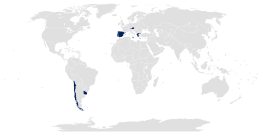The legal status of transgender people varies greatly around the world. Some countries have enacted laws protecting the rights of transgender individuals, but others have criminalized their gender identity or expression. In many cases, transgender individuals face discrimination in employment, housing, healthcare, and other areas of life.
Gender Equality Education Act of Taiwan was enacted on June 23, 2004. The General Provisions states the purposes of the act: "to promote substantive gender equality, eliminate gender discrimination, uphold human dignity, and improve and establish education resources and environment of gender equality." In recent years, this act has become controversial because it has implemented anti-discrimination on LGBT rights and LGBT sex education.

The Organisation Intersex International (OII) is a global advocacy and support group for people with intersex traits. According to Milton Diamond, it is the world's largest organization of intersex persons. A decentralised network, OII was founded in 2003 by Curtis Hinkle and Sarita Vincent Guillot. Upon Hinkle's retirement, American intersex activist Hida Viloria served as Chairperson/President elect from April 2011 through November 2017, when they resigned in order to focus on OII's American affiliate, OII-USA's transition into the independent American non-profit, the Intersex Campaign for Equality.

The rights of lesbian, gay, bisexual, transgender, and queer (LGBTQ) people in the Republic of China (Taiwan) are regarded as some of the most comprehensive of those in Asia. Both male and female same-sex sexual activity are legal, and same-sex marriage was legalized on 24 May 2019, following a Constitutional Court ruling in May 2017. Same-sex couples are able to jointly adopt children since 2023. Discrimination on the basis of sexual orientation, gender identity and gender characteristics in education has been banned nationwide since 2004. With regard to employment, discrimination on the basis of sexual orientation has also been prohibited by law since 2007.

Intersex Human Rights Australia (IHRA) is a voluntary organisation for intersex people that promotes the human rights and bodily autonomy of intersex people in Australia, and provides education and information services. Established in 2009 and incorporated as a charitable company in 2010, it was formerly known as Organisation Intersex International Australia, or OII Australia. It is recognised as a Public Benevolent Institution.
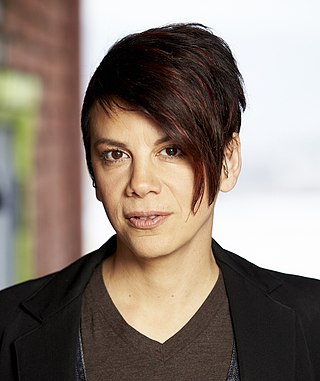
Hida Viloria is an American writer, author, producer, and human rights activist of Latin American origin. Viloria is intersex, nonbinary, and genderfluid, using they/them pronouns. They are known for their writing, their intersex and non-binary human rights activism, and as one of the first people to come out in national and international media as a nonbinary intersex person. Viloria is Founding Director of the Intersex Campaign for Equality.

The International Intersex Forum is an annual event organised, then later supported, by the ILGA and ILGA-Europe that and organisations from multiple regions of the world, and it is believed to be the first and only such intersex event.
Oii-Chinese is an intersex advocacy and support group and the Chinese-language affiliate of Organisation Intersex International. Oii-Chinese, founded by Hiker Chiu in 2008, is active in Taiwan, Hong Kong, and other areas in East Asia.
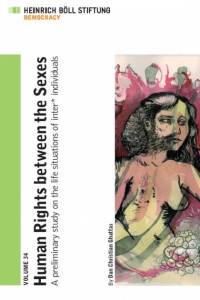
Human Rights between the Sexes is an analysis of the human rights of intersex people in 12 countries. It was written by Dan Christian Ghattas of the Internationalen Vereinigung Intergeschlechtlicher Menschen and published in October 2013 by the Heinrich Böll Foundation. The countries studied were Australia, Belgium, France, Germany, New Zealand, Serbia, South Africa, Taiwan, Turkey, Uganda, Ukraine and Uruguay.

Intersex people are born with sex characteristics, such as chromosomes, gonads, or genitals, that, according to the UN Office of the High Commissioner for Human Rights, "do not fit typical binary notions of male or female bodies."
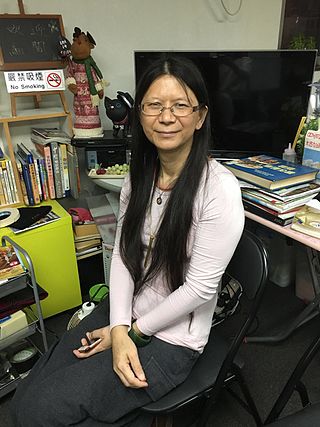
Small Luk is an intersex human rights activist and the first intersex person to openly acknowledge her biological sex characteristics in Hong Kong. She was born with partial androgen insensitivity syndrome (PAIS). Luk lived as a male for 36 years, and now identifies and lives as a woman, after changing her sex characteristics from intersex to female through gender-affirming surgery, upon doctors' advice to undergo the surgery because her type of PAIS would most likely have caused cancer.

Intersex people are born with sex characteristics, such as chromosomes, gonads, or genitals that, according to the United Nations Office of the High Commissioner for Human Rights, "do not fit typical binary notions of male or female bodies".

Intersex people are born with sex characteristics, such as chromosomes, gonads, or genitals that, according to the UN Office of the High Commissioner for Human Rights, "do not fit typical binary notions of male or female bodies". "Because their bodies are seen as different, intersex children and adults are often stigmatized and subjected to multiple human rights violations".

Intersex rights in Australia are protections and rights afforded to intersex people through statutes, regulations, and international human rights treaties, including through the Sex Discrimination Act 1984 (Cth) which makes it unlawful to discriminate against a person based upon that person's intersex status in contexts such as work, education, provision of services, and accommodation.

The Malta declaration is the statement of the Third International Intersex Forum, which took place in Valletta, Malta, in 2013. The event was supported by the ILGA and ILGA-Europe and brought together 34 people representing 30 organisations from multiple regions of the world.
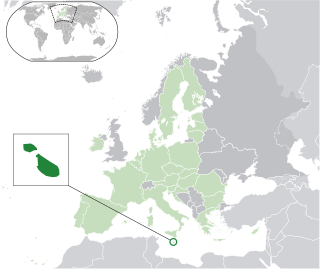
Intersex rights in Malta since 2015 are among the most progressive in the world. Intersex children in Malta have world-first protections from non-consensual cosmetic medical interventions, following the passing into law of the Gender Identity, Gender Expression and Sex Characteristics Act in 2015. All Maltese intersex persons have protection from discrimination. Individuals who seek it can access simple administrative methods of changing sex assignment, with binary and non-binary forms of identification available.

Intersex people in Germany have legal recognition of their rights to physical integrity and bodily autonomy, with exceptions, but no specific protections from discrimination on the basis of sex characteristics. In response to an inquiry by the German Ethics Council in 2012, the government passed legislation in 2013 designed to classify some intersex infants as a de facto third category. The legislation has been criticized by civil society and human rights organizations as misguided.

Intersex rights in China including the People's Republic of China, the Hong Kong Special Administrative Region, etc., are protections and rights afforded to intersex people through legislation and regulation. Obligations also arise in United Nations member states that sign international human rights treaties, such as the People's Republic of China. Intersex people in China suffer discrimination. Issues include both lack of access to health care and coercive genital surgeries.

Intersex people in Uganda face a dangerous environment, with significant gaps in protection from mutilation and non-consensual cosmetic medical interventions and protection from discrimination.

Intersex people are born with sex characteristics, such as chromosomes, gonads, hormones, or genitals that, according to the UN Office of the High Commissioner for Human Rights, "do not fit the typical definitions for male or female bodies". Such variations may involve genital ambiguity, and combinations of chromosomal genotype and sexual phenotype other than XY-male and XX-female.


